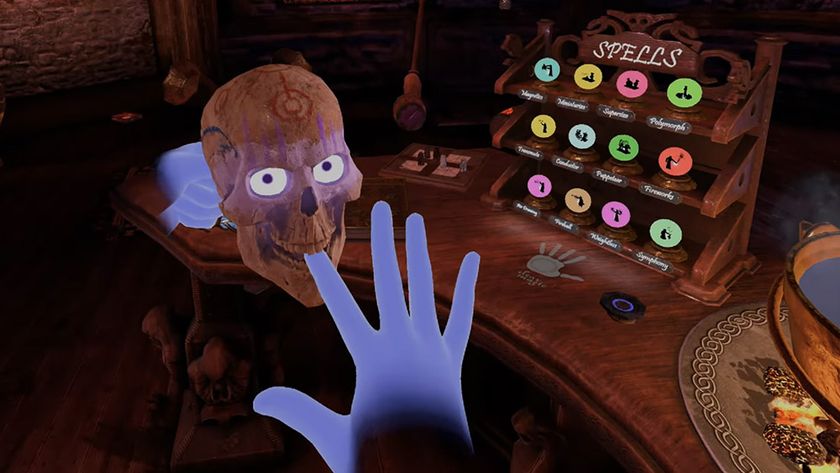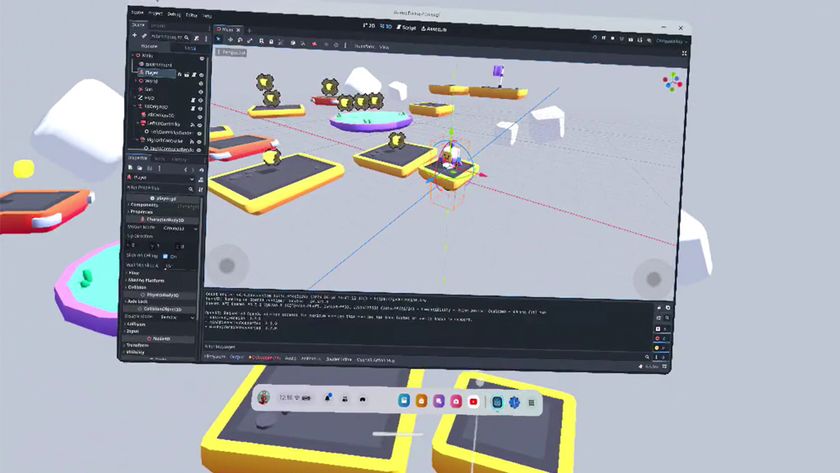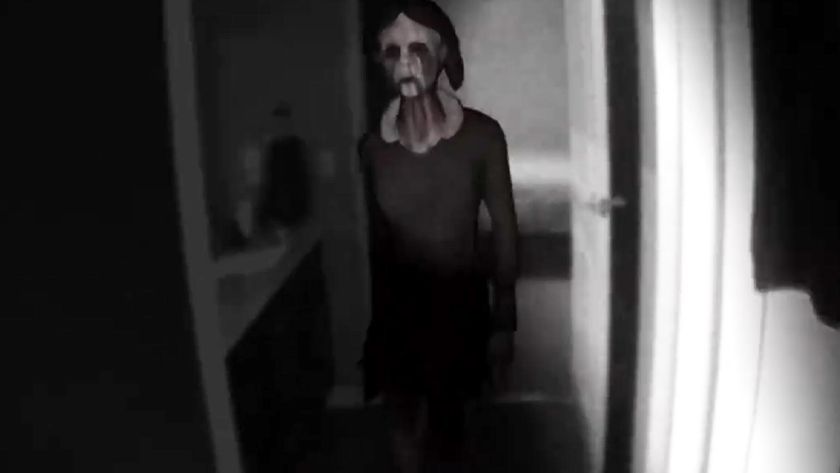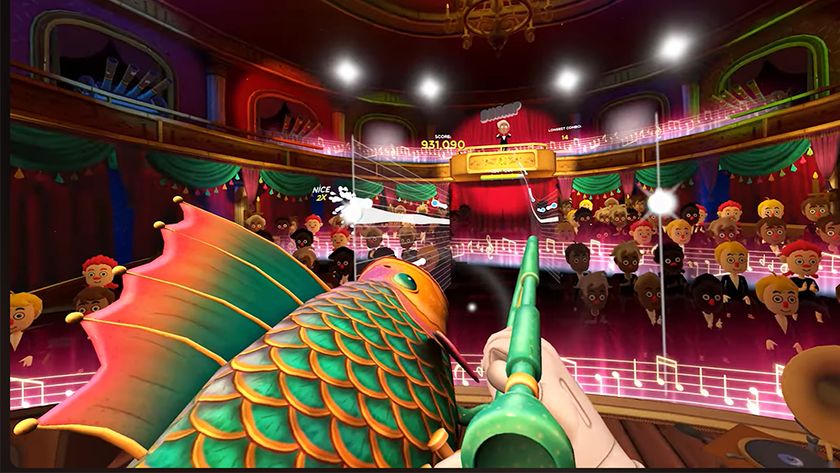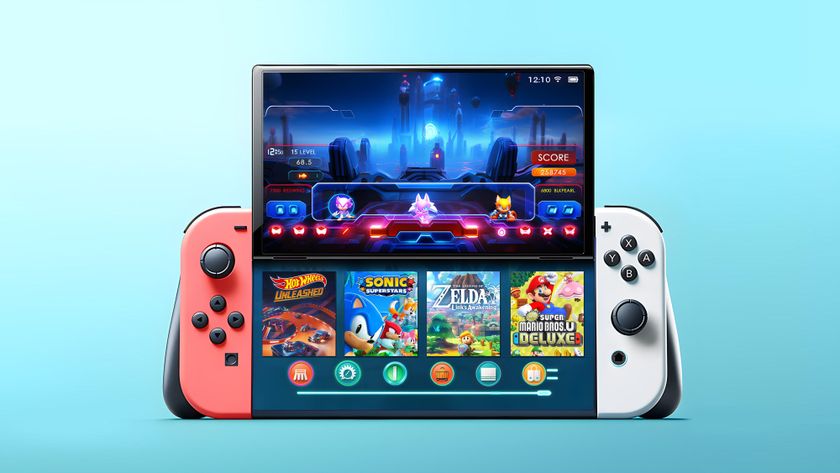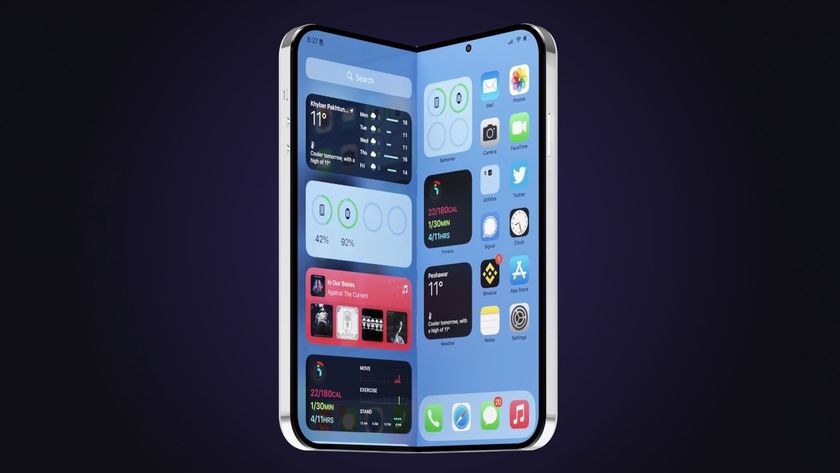VR can affect social change, believes BAFTA Breakthrough filmmaker and artist Poulomi Basu
MAYA: The Birth of a Superhero tells a uniquely female story.
VR animated film MAYA: The Birth of a Superhero has already garnered praise for digital artist and filmmaker Poulomi Basu, with a nomination at Festival de Cannes Compétition Immersive 2024 as well as earning a Winner Special Jury Mention Prize 2023 Tribeca Festival. Released for the best VR headsets, MAYA: The Birth of a Superhero is boundary-pushing art as much as it is a 'game'.
But being chosen as a BAFTA Breakthrough remains just as momentous for artist and activist Poulomi Basu, who was born and raised in Kolkata. “It's hard to quantify what these things mean, because sometimes they're so big that it just feels surreal and unreal, right? Growing up with my background and everything, I've had so little of being important and powerful… It feels absurdist and surreal in some ways, but also, at the same time, it makes me feel great that I belong, and I have been welcomed, and I've been chosen because I deserve it.”
It feels absurdist and surreal in some ways, but also, at the same time, it makes me feel great that I belong
Poulomi Basu, artist and filmmaker
Poulomi’s work has mostly been based around photography, and she has particularly focused on the marginalisation of women, motivated by her own family’s experiences. “My mother and my grandmother were both child brides, and my mother then became a child mother, and then they both became young widows, so they lived a life of restrictions,” she says.
VR can affect change

Her 2013 photographic collection Blood Speaks: A Ritual of Exile documented the Nepalese practice of Chhaupadi, in which women who are menstruating or bleeding after childbirth are considered ‘impure’ and exiled to makeshift huts. “Then I made 360-degree VR documentary films which were about being in that spatial confinement with the women,” recalls Poulomi.
A new law issuing fines or jail terms for people forcing women into menstrual confinement was passed in Nepal in 2017. “But I just kind of realised that even though laws change and things change. people's hearts and minds don't easily change,” Poulomi says. “And I realised, after living in the UK for so many years, that this element of taboo and shame [around periods] is so big: it just manifests in different societies in different ways.”
This led her to create the interactive VR experience MAYA: The Birth of a Superhero. “MAYA is about a South Asian girl growing up in Tower Hamlets, and how her life changes with her first period,” she says. “It's about the sexual awakening and navigating this world of intergenerational trauma and period violence.” After overcoming her shame and fear, Maya unlocks her true superpowers.

Poulomi says that VR was the perfect medium to tell this story because it allows the player to embody Maya and experience her feelings of shame and subsequent transformation and liberation firsthand.
Get the Creative Bloq Newsletter
Daily design news, reviews, how-tos and more, as picked by the editors.
“I feel like, to start any sort of change in the world, to change other people, you have to first understand what it is to change yourself,” she says. “It was important for me to have this individual experience, before you can begin to take what you've just felt and experienced into a collective world. Because I firmly believe that change begins from us as individuals.”
After feeling like an outsider for much of her life, Poulomi hopes that being chosen as a BAFTA Breakthrough will open up previously unattainable spaces, allowing her to meet producers and directors, as well as gaining valuable mentoring.
She points out that for women and young creatives of colour, it can be hard to break in. “We don't get access to these spaces. They don't come easy. So I feel like it is something I deserve, and we always become what we're always meant to be.”
You can discover more about this year's BAFTA Breakthrough cohort at the BAFTA website. If you're keen to know more about VR development, read our interview with Archiact's Seb Bouzac and Synapse's art director Alina Fedaseyenka.

Thank you for reading 5 articles this month* Join now for unlimited access
Enjoy your first month for just £1 / $1 / €1
*Read 5 free articles per month without a subscription

Join now for unlimited access
Try first month for just £1 / $1 / €1

Lewis Packwood has been writing about video games professionally since 2013, and his work has appeared in The Guardian, Retro Gamer, EDGE, Eurogamer, Wireframe, Rock Paper Shotgun, Kotaku, PC Gamer and Time Extension, among others. He is also the author of Curious Video Game Machines: A Compendium of Rare and Unusual Consoles, Computers and Coin-Ops (White Owl, 2023).
